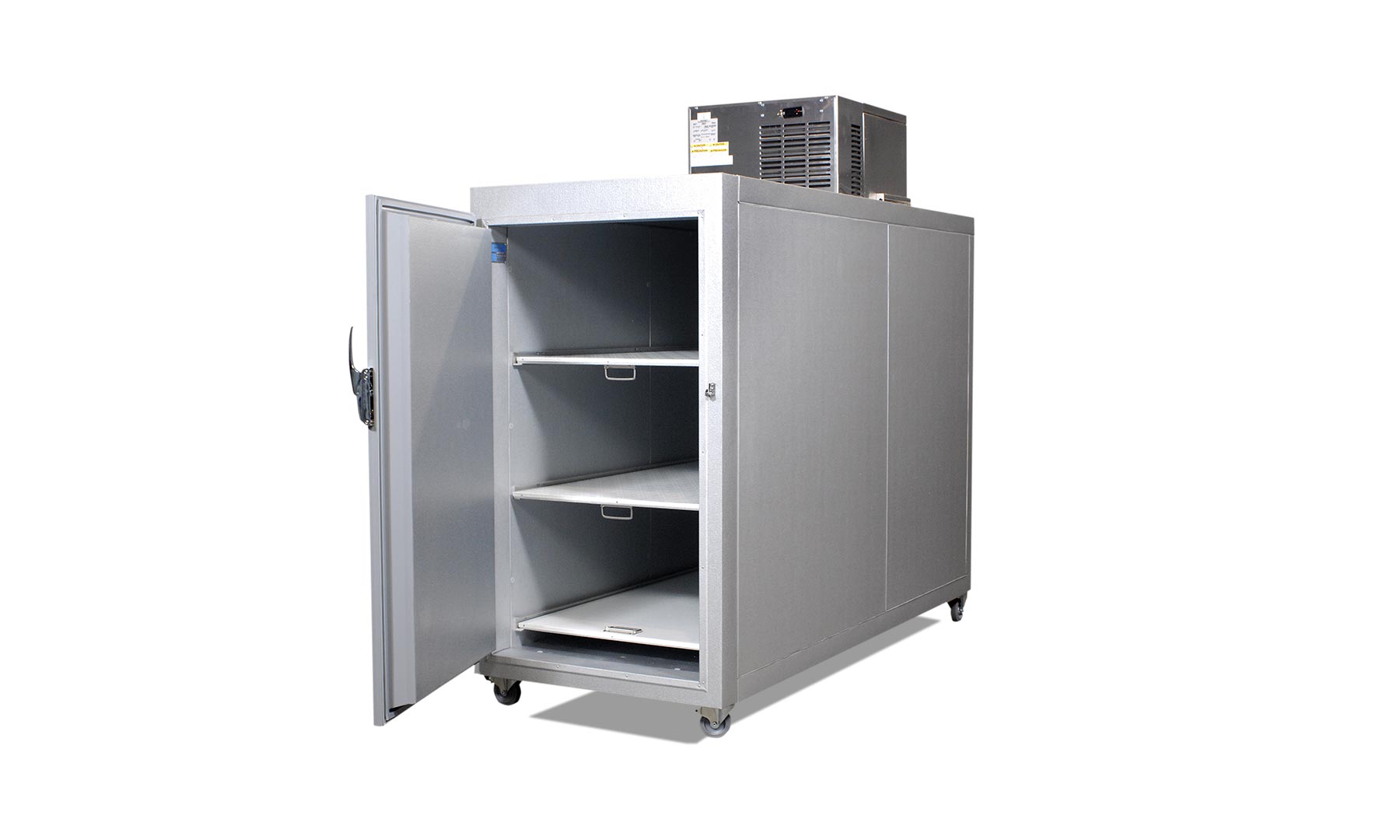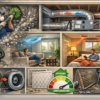Modern Innovations in Mortuary Coolers and Their Impact on the Funeral Industry
Key Takeaways:
- Discover how technology reshapes mortuary coolers.
- Explore the environmental benefits of new cooling techniques.
- Learn best practices for funeral professionals using advanced mortuary solutions.
Introduction
Mortuary coolers are fundamental to funeral home operations, representing the intersection between technological innovation and the timeless traditions of honoring the deceased. Over the decades, the expectations of funeral services have expanded, influenced by cultural shifts and technological advancements. As these expectations evolve, so does the need for advanced mortuary solutions like custom mortuary coolers for funeral professionals. These advancements stem from an imperative to not only meet but exceed the rising standards of care that families and communities expect in honoring their loved ones. As the demand for more nuanced and environmentally responsible options grows, these technologies provide a unifying solution that blends respect, efficiency, and sustainability.
Beyond basic preservation, these innovations underscore a more profound commitment to dignity and care. They encapsulate the spirit of progress within the funeral industry, ensuring that funeral homes remain relevant and that they are leaders in providing respectful and innovative services in an ever-evolving marketplace. The advent of modern cooling solutions stands at the forefront of these changes, marking a pivotal moment in how funeral practices are executed in the 21st century.

The Evolution of Mortuary Coolers
The evolution of mortuary coolers embodies a rich tapestry of innovation influenced by necessity and technological advancements. In earlier times, refrigeration units in mortuaries were rudimentary and heavily reliant on straightforward cooling principles to preserve bodies until final arrangements could be made. These units did what was required but lacked sophistication and consideration for environmental impacts. Modern mortuary coolers, however, have been meticulously engineered to meet various new standards, addressing both functionality and eco-friendliness. Today’s systems prioritize energy efficiency, with many incorporating state-of-the-art insulation materials and intelligent design features that dramatically reduce energy consumption. This shift is not merely a nod to environmental ideals but a critical response to the legislation and public demand requiring greater accountability, especially concerning sustainability.
The advances in cooling technology extend beyond energy usage. Many new systems are now equipped with features that allow for more intuitive user interfaces and programmable settings to accommodate specific needs. This allows funeral directors to focus on providing compassionate care without being bogged down by technical concerns. This holistic approach ensures operational efficacy and enriches the service quality offered to grieving families, laying a foundation of trust and respect in times of loss.
Modern Cooling Technologies
Integrating modern cooling technologies into mortuary coolers marks a significant leap from conventional methods to advanced, precision-driven solutions. High-efficiency compressors are at the core of these innovations, offering unparalleled cooling capabilities that ensure consistent, reliable operation. These compressors are designed to handle varying demands and conditions, providing peace of mind for those operating within the sensitive context of funeral services. Moreover, the shift towards environmentally friendly refrigerants has addressed longstanding concerns about the ozone layer and greenhouse gas emissions. Innovations in this area have led to effective refrigerants that cause significantly less environmental harm. For instance, cutting-edge refrigerants are committed to both efficacy and sustainability, ensuring that mortuary coolers operate at peak performance while minimizing ecological impact. These technological advancements extend beyond the mechanical aspects of cooling, delving into innovative technology. Many modern systems now include digital interfaces that offer real-time monitoring of temperatures and system status, alerting operators to any discrepancies that may require attention. This level of oversight ensures that potential issues are resolved swiftly, maintaining the integrity of the services provided and upholding the standard of care that families expect.
Environmental and Ethical Considerations
While rooted in longstanding cultural norms, traditional practices often fail to align with modern environmental standards. As critical components of funeral service operations, mortuary coolers are pivotal in bridging this gap between tradition and sustainability. Modern mortuary systems are essential in broader efforts to combat climate change by incorporating technology that reduces a funeral home’s carbon footprint. Using eco-friendly refrigerants and energy-efficient designs exemplifies this commitment, providing environmentally conscious options that do not sacrifice quality or reliability. These choices reflect an understanding of and responsibility towards the planet.
Furthermore, embracing sustainable technologies underscores an ethical commitment to the communities these funeral homes serve. Adopting green practices reflects an industry that is cognizant of its environmental responsibilities and actively participates in positive change. Such conscientious approaches contribute significantly to a healthier planet, setting a precedent for what sustainability can look like in funeral services.
Practical Benefits for Funeral Homes
The transition to modern mortuary coolers offers many advantages that extend well beyond the basic functionality of body preservation. From an operational standpoint, these systems provide notable financial benefits. High-efficiency models result in considerably lower utility costs and significant savings over time. For funeral home directors, this means a more predictable and cost-effective budget, allowing resources to be allocated to other critical service areas. Increased reliability is another noteworthy benefit of modern coolers. The robust construction of today’s units often equates to longer lifespans and fewer repairs needed over time, reducing both downtime and maintenance costs. These factors combine to create an operation that is not only smooth but consistently able to meet the needs of its clientele without unnecessary interruption.
Adopting advanced cooling technologies significantly enhances a funeral home’s reputation and credibility, signaling clients that the establishment is at the forefront of innovation and care. For instance, a case study of a funeral home in Ohio highlighted how their investment in state-of-the-art cooling systems cut costs by over 30% annually and led to higher client satisfaction and referrals, underscoring the multifaceted advantages of such technological investments.
Maintaining and Operating Modern Coolers
Modern mortuary cooling systems require a nuanced understanding of their features and design. Regular maintenance ensures that these systems run efficiently, with operators encouraged to regularly inspect and service components according to the manufacturer’s guidelines. Staff training remains a cornerstone of effective operation. Operational efficacy is maintained by ensuring that funeral home staff are adept at handling these advanced systems. This training encompasses everything from basic operation and monitoring to more complex tasks, such as troubleshooting and maintenance guidelines. Training programs also provide a platform for fostering a culture of continual learning and adaptability, equipping staff with the necessary skills to manage current technology and adapt to future advancements. This forward-thinking element is key to sustaining relevance in an industry that continues to evolve rapidly with technological progress. It prepares staff for innovations that further enhance the service quality, promoting an environment of confidence and expertise that resonates with clients.
Future Trends and Innovations
Looking to the future, the scope for additional innovations in mortuary cooling technology is vast and promising. As technology advances, so do the possibilities for creating systems that afford even greater precision, efficiency, and user-friendliness. One area poised for significant advancement is artificial intelligence, which offers the potential to enhance further both the functionality and utility of mortuary cooling systems. AI’s role in predictive maintenance and real-time data analysis is to revolutionize how cooling systems are monitored and maintained. Moreover, AI can enhance temperature regulation by automatically adjusting settings based on real-time data and environmental factors, ensuring optimal conditions are maintained continually.
Looking beyond automation, there is a growing interest in integrating sustainable energy sources into these systems. Solar power and other renewable energy options may introduce scalable, eco-friendly solutions that redefine how funeral establishments manage energy consumption. Funeral homes that actively engage with and adapt to these technologies will reduce environmental impact and operational costs and demonstrate leadership in sustainable business practices.
Real-World Applications
The application of modern mortuary coolers in real-world settings provides insightful case studies demonstrating their substantial impact. These innovations translate into improved service delivery, satisfied clients, and enhanced operational efficiency. The case of a Texas-based funeral home reveals how implementing new cooling systems improved temperature control reliability, subsequently increasing client satisfaction and confidence. Further discussions with industry professionals highlight a shared optimism and enthusiasm toward embracing new technological solutions. Such case studies serve as a testament to the tangible benefits of innovation, inspiring funeral home directors to consider the long-term advantages of investing in advanced cooling systems. In doing so, they contribute to an industry-wide culture of quality, responsibility, and sustainability that resonates profoundly with their communities’ needs and expectations.
The landscape of the funeral industry is evolving, marked by technological advancements that enhance and redefine traditional practices. Mortuary coolers are a focal point of this progress, transforming funeral services through their efficiency, reliability, and respect for the deceased. As the industry continues to pursue innovative solutions, integrating modern technologies will be instrumental in ensuring continued excellence and responsiveness to changing societal values. Ultimately, modern mortuary coolers embody the spirit of innovation and compassion within the funeral industry. By prioritizing both environmental responsibility and operational effectiveness, these systems underscore a holistic approach to care that aligns with the values and expectations of today’s society.
FOLLOW US ON FACEBOOK
RECENT POSTS
TAGS
About The Memory Hole
You've reached TheMemoryHole.org! A diverse lifestyle blog with content on a variety of different topics to help you define and live the life you want to live! Thanks for stopping by!
Copyright © The Memory Hole. All rights reserved.








